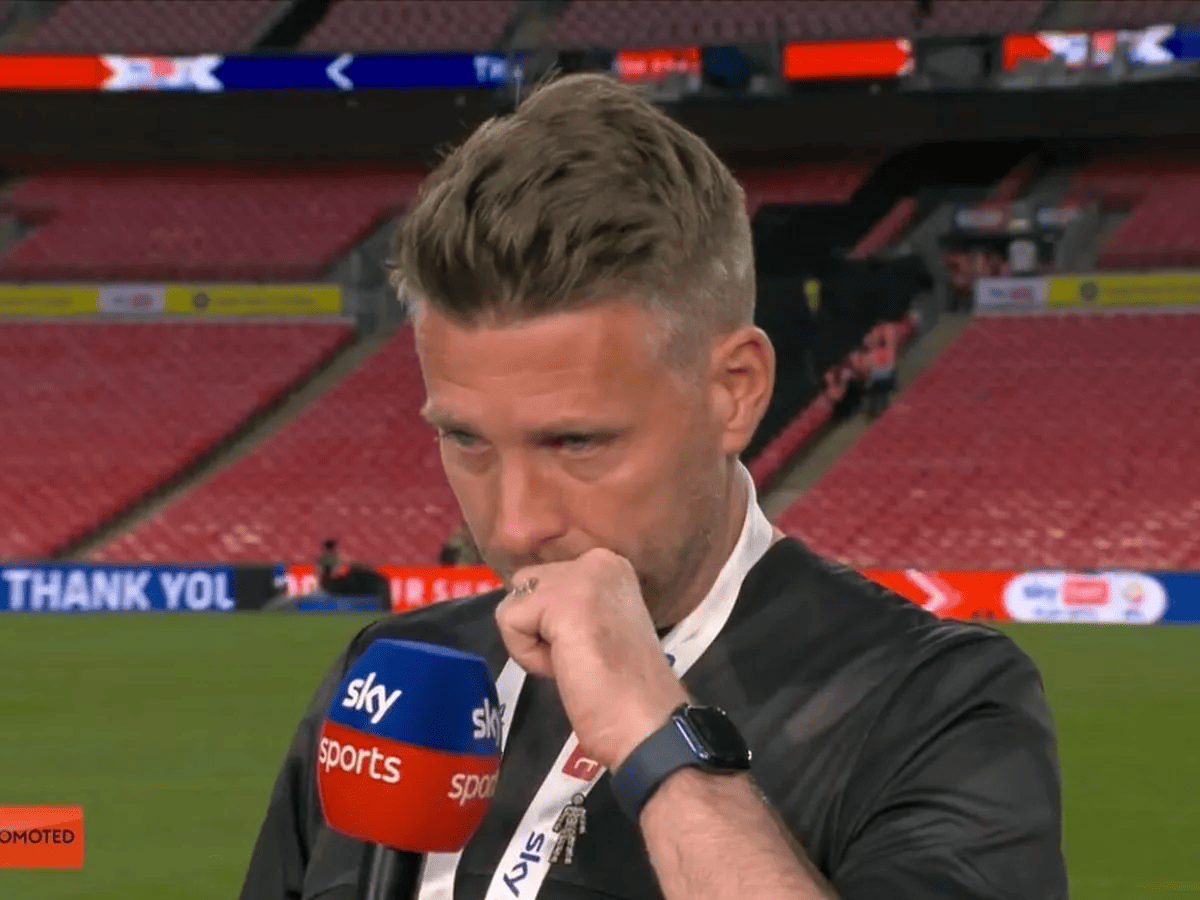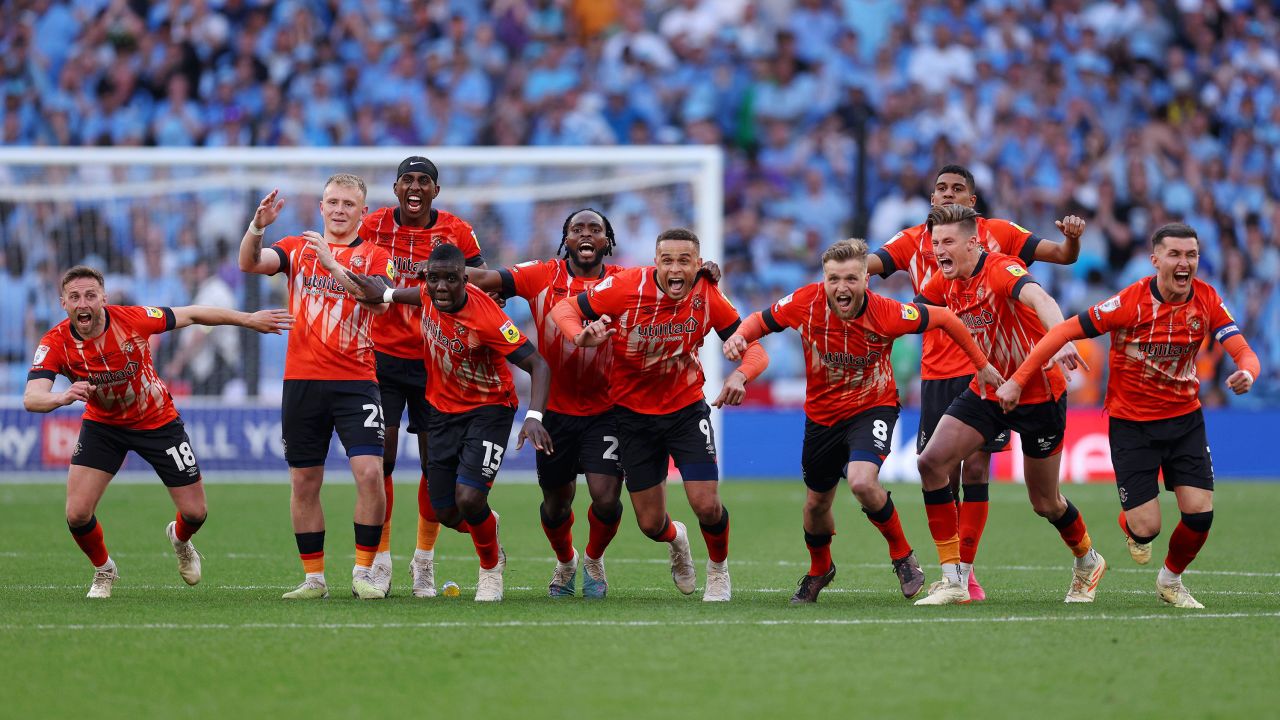Luton boss Edwards explains his four changes and tactical tweak at Craven Cottage

Town manager Rob Edwards revealed his reasons behind the four changes he made for Saturday’s 1-0 loss to Fulham, which resulted in the first significant altering of his system since the Hatters’ return to the top flight.
Albert Sambi Lokonga made his first start for Luton Town after joining on loan from Arsenal, with fit-again captain Tom Lockyer returning to the defense.
Issa Kabore, on loan from Manchester City, also returned, while summer acquisition Jacob Brown made his full Premier League debut, with Elijah Adebayo, Ryan Giles, and Alfie Doughty falling to the bench and Ross Barkley out with a hamstring injury.
When the visitors lost control, they lined up differently than on previous visits to Stamford Bridge and the Amex Stadium, with Carlton Morris as the lone striker and two banks of four behind him.
Despite having to spend much of the game chasing their opponents, with Fulham having 78% of the ball, the tactics worked well, with the Cottagers only managing two efforts on target throughout the game.
One came from a long-range free kick collected by Thomas Kaminski, but the other ended up in the back of the net, with Carlos Vinicius pouncing after Kaminski failed to handle Willian’s left wing cross.
“We tweaked the shape as it suited Browny a little bit more to play slightly wider and cover the spaces,” Edwards said of his decision to change the side and start Scottish international Brown alongside Morris from the start for the first time.”We wanted to use his work-rate, effort, and speed on transition, so we covered the spaces a little more and didn’t necessarily play with the two upfront out of possession.”
“We want to try to cover the space and then flip it and be a threat on the counter attack with Browny and Chongy (Tahith Chong) from the wider areas.”
“Once again, I thought it worked extremely well.”
“I thought the boys were spot on tactically, with lots of rotation from Fulham, but they didn’t really cause a problem.”
“Even after halftime, yes, they had more possession of the ball, but they struggled to break us down, so that was the thinking behind those changes anyway.”
After falling behind on 62 minutes, Edwards made substitutions in the closing stages, bringing on Chiedozie Ogbene, Pelly-Ruddock Mpanzu, Doughty, and Adebayo, soon followed by Cauley Woodrow, as it clearly boosted his side’s attacking efforts, Town beginning to look the team more likely to find a goal.
“We have to try to stay in the game,” the CEO continued.
“It’s critical that we don’t fall behind 2-0, so we have to try to maintain a presence in the game by staying in it and keeping it at 1-0, but then turn up the heat late on.”
“When we make the changes, the information is, right, we have to try and start pressing and start pressing high and forcing the issue, and forcing them to make mistakes.”
“On the other hand, you could be a little bit more open, and they had one or two small moments where we had to do some emergency defending, but you take that risk in that moment.”
“I feel like we turned up the heat with 10-15 minutes left, Chieo gave us a real threat down that right, Cauley and Eli gave us some really good energy and potency as well.”
“On another day, Locks puts that header in, and we’re discussing something else.”
Although Town were defeated for the fourth time in a row, Edwards saw plenty of positives, especially with Brown nodding against the post from close range, Amari’i Bell volleying straight at Bernd Leno, and Lockyer putting a more difficult header wide in stoppage time.
“There’s that one (Brown header) and the other two, Amari’i as well, which he just said, ‘I should score,’ and Locks’ one right at the end,” the Luton manager said.
“In my opinion, it’s three brilliant chances plus the penalty decision, so we’re disappointed we didn’t take something from it.”

“They had the ball, but it’s about creating chances, and I think we did a good job of that.”
“They’re (the players) down, I’m down, we’re disappointed because we’re winners and want points, but I’ve seen progress from a couple of weeks ago.”
“I saw a very well-organized team that attacked quickly and posed a real threat, as well as a team that was very well-organized and happy to defend key moments.”
“It was difficult for Fulham to play through, round, or over us because they couldn’t find the space.”
“The one big effort was when they got a cross and were able to get a big opportunity to score.”
“They had one from a corner in the first half, from a header, but nothing else.”
“We limited some off-target efforts from outside the box, and they’re a good footballing team, so I’ve seen progression.”
“I’m proud of the players, and I hope I’m sitting here in a week’s time, and we’ve seen another, better performance, at home, and we’ve taken some points from it.”
